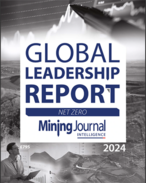This article is 8 years old. Images might not display.
The company produced a record 217,812 ounces in the December quarter, with Ernest Henry only contributing two months of production to the result.
Cowal had a record quarter under Evolution ownership, producing 71,903oz gold.
Evolution’s attributable Ernest Henry production was 14,257oz at all-in sustaining costs of negative $A114 an ounce.
The negative costs helped Evolution achieve a record quarter for costs with C1 cash costs down by 22% to $585/oz and AISC down by 15% to $900/oz.
“On a US dollar basis, our C1 costs are just $US439/oz and our all-in sustaining costs are $676/oz,” Evolution executive chairman Jake Klein said.
“Given the global average all-in sustaining costs are $900/oz for gold producers, this truly puts us in a globally competitive position.”
Evolution’s mines generated operating mine cashflow of $170.3 million, and net mine cashflow of $A102.1 million, with a $105/oz drop in the gold price offset by lower costs.
The strong result allowed the company to make $70 million in debt repayments, reducing net debt to $588.5 million. Net debt peaked at $647.3 million during the quarter.
Both Macquarie analyst Ben Crowley and RBC Capital Markets analyst Paul Hissey said the quarterly result beat expectations on both production and cost.
“2017 looks to be a continuation of the 2016 theme of operational delivery and accelerated debt repayment combined with attractive growth options,” Crowley said.
On the development front, Evolution completed the drilling for the Stage H cutback at Cowal, with highlights including 41m at 1.17 grams per tonne gold from 643m, and 6m at 7.64gpt gold from 638m.
The results of the feasibility study, which will extend the life of the mine until 2032, will be presented to the board for approval by the end of the quarter.
Evolution shares fell by 3c to $2.27.























